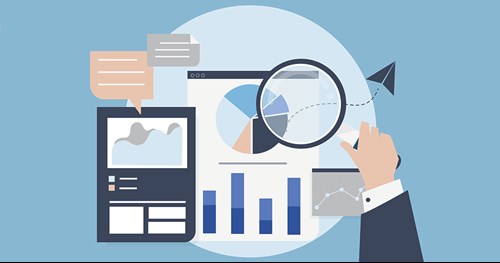The Blue Cross Blue Shield Association (BCBSA) and Blue Cross Blue Shield (BCBS) companies urge the health care industry to implement national industry standards for health equity data collection.

Data standardization is critical to quantify the extent of health disparities and advance health equity throughout the health care system, according to the BCBSA and BCBS companies, which recently released a thought leadership paper, The Ethical and Transparent Use of Data to Reduce Health Disparities, calling for the adoption of health equity data collection standards.
Throughout the paper, the companies propose a data standardization model that aims to address what they identify as the three main types of health inequities: differences in quality of care, differences in access to care, and differences in prevalence of disease.
“Every data point is a person with a story,” said Sean Robbins, executive vice president, external affairs for BCBSA, in a statement. “BCBSA and BCBS companies have an opportunity–and responsibility–to help ensure data accurately and equitably represents every patient we serve. We’re eager to work with policymakers and colleagues across the industry to develop and adopt common industry data standards in pursuit of our shared goal to build a more equitable health care system.”
To address health disparities, the paper outlined four key components to improve health equity data:
- High quality data to measure, monitor, and track changes in health disparities. Challenges that typically interfere with data quality, according to the BCBSA, include bias of smaller data sets and reliability, data validity, and self-reported data.
- Granular data to collect detailed information around regions and populations that may not be currently represented in national data sets.
- Disaggregated data that will enable the granular insights critical to address disparities.
- Data to monitor change over time to identify areas of new inequities, effectiveness of implemented interventions, and trends in health disparities.
Effective data collection requires “unified industry standards” rather than a single organization, wrote BCBSA. To make real advancements across the health care industry, BCBSA proposed three data collection standards for each of the health equity data sets, including race, ethnicity, and language (REL); sexual orientation and gender identity (SOGI); and social determinants of health (SDoH).
The paper recommends the following standards for each data set:
- REL: Maintain the existing Office of Management and Budget standard with the addition of disaggregated categories
- SOGI: Establish a standard set through the Health Level 7 (HL7) project, Gender Harmony
- SDoH: Leverage the Gravity Project through HL7 as a foundation to expand data and interoperability
In their final plea to the industry, BCBSA closed with three calls to action: develop data collection standards across REL and SOGI data sets, adopt standards for imputation methods, and listen to patients to better understand how to effectively collect data.
“Successful initiatives must take place at an ecosystem level, and collaboration across that ecosystem is necessary,” wrote BCBSA in the paper. “A more uniform approach to data collection and usage will empower the health care ecosystem to collaborate in a way that fosters unity and equitable outcomes and makes meaningful progress in addressing health inequities.”
